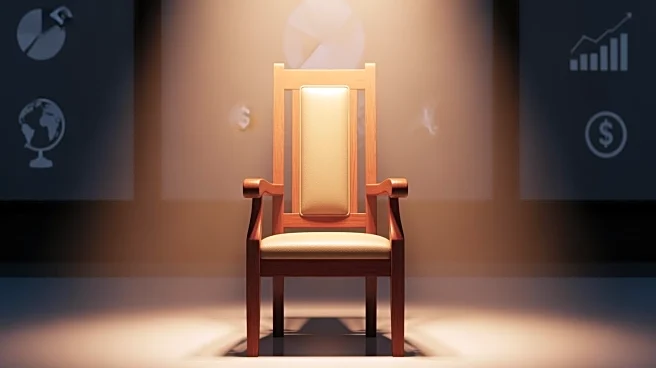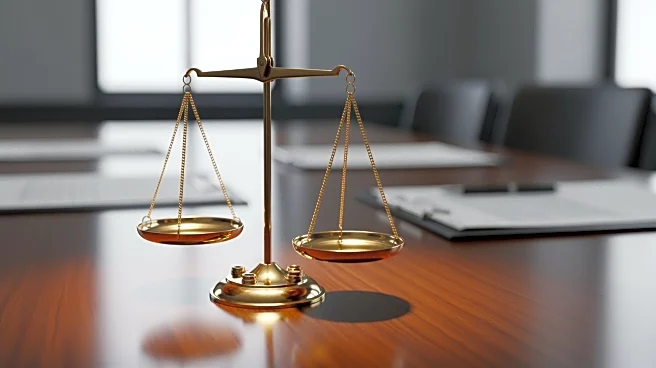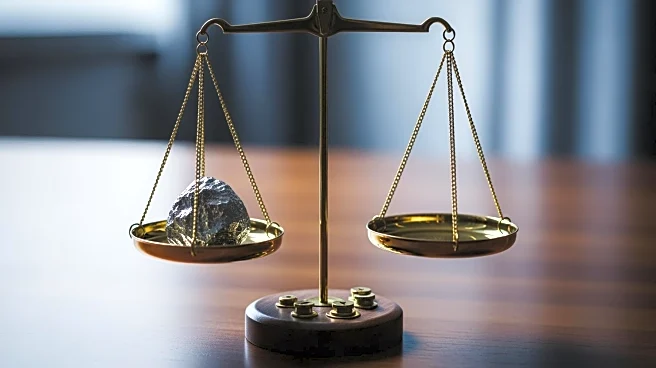What's Happening?
President Trump has expressed interest in appointing Scott Bessent as the next Chairman of the Federal Reserve. During a speech in Japan, Trump praised Bessent's ability to calm the markets, contrasting it with his own tendency to disturb them. Despite
this consideration, Trump noted that his Secretary of the Treasury is unlikely to take the position, preferring his current role. Bessent has confirmed that five candidates are being considered to replace Jerome Powell, including Federal Reserve governors Christopher Waller and Michelle Bowman, former Fed governor Kevin Warsh, White House economic adviser Kevin Hassett, and Rick Rieder from BlackRock. Interviews are planned, with a final list to be presented to Trump after Thanksgiving.
Why It's Important?
The potential appointment of Scott Bessent as Federal Reserve Chair is significant due to the role's influence on U.S. monetary policy and economic stability. The Federal Reserve Chair is pivotal in setting interest rates and guiding economic policy, impacting inflation, employment, and overall economic growth. Bessent's ability to soothe markets could be seen as beneficial during times of economic uncertainty. However, the transition from Jerome Powell to a new chair could lead to shifts in policy direction, affecting financial markets and economic stakeholders. The selection process and final decision will be closely watched by investors and policymakers.
What's Next?
Following the interviews, Scott Bessent will present a shortlist of candidates to President Trump after Thanksgiving. The decision on the next Federal Reserve Chair will likely influence market expectations and economic forecasts. Stakeholders, including financial institutions and policymakers, will be preparing for potential changes in monetary policy. The appointment process may also prompt discussions on the future direction of the Federal Reserve, especially in terms of interest rate policies and economic strategies.
Beyond the Headlines
The consideration of Scott Bessent for the Federal Reserve Chair highlights the intersection of politics and economic policy. The decision could reflect broader political strategies and priorities within the Trump administration. Additionally, the appointment process may raise questions about the independence of the Federal Reserve and its ability to operate free from political influence. The outcome could have long-term implications for the credibility and effectiveness of U.S. monetary policy.














